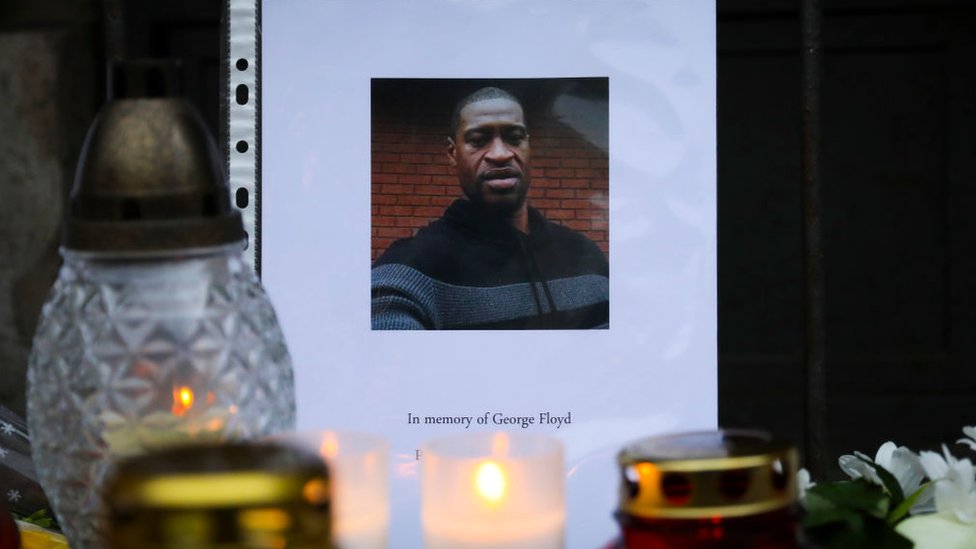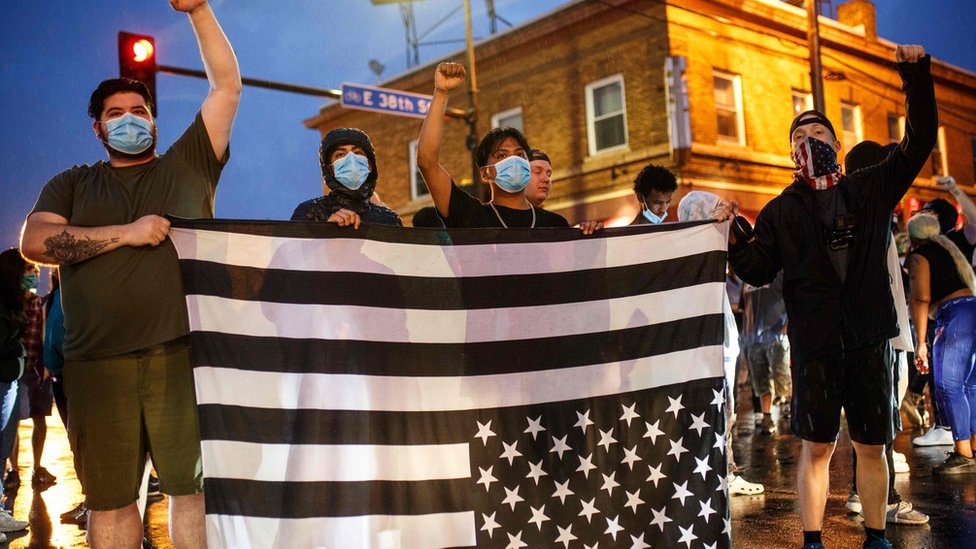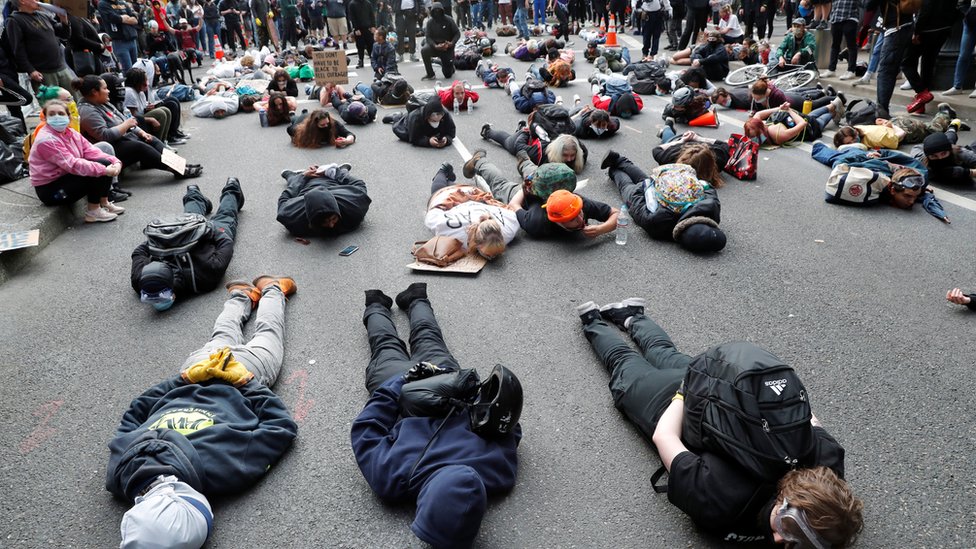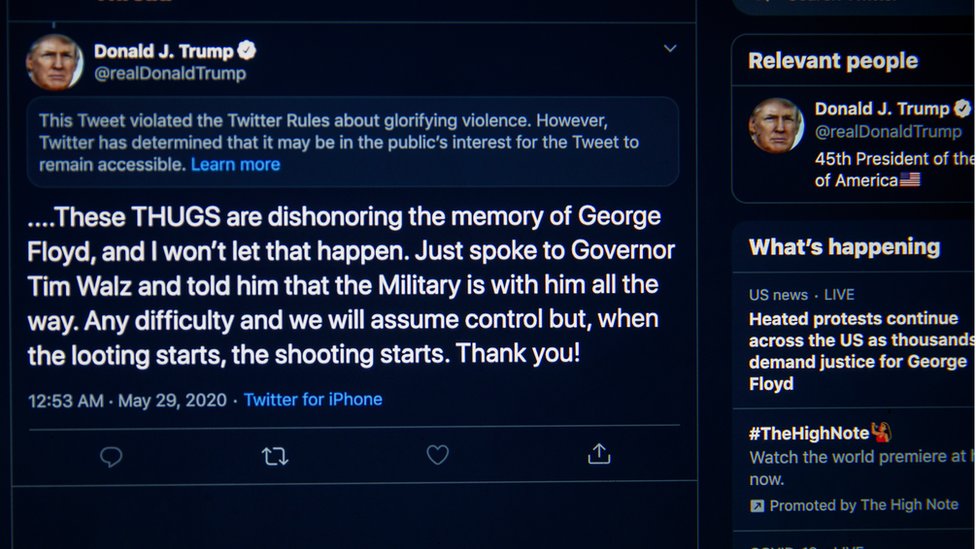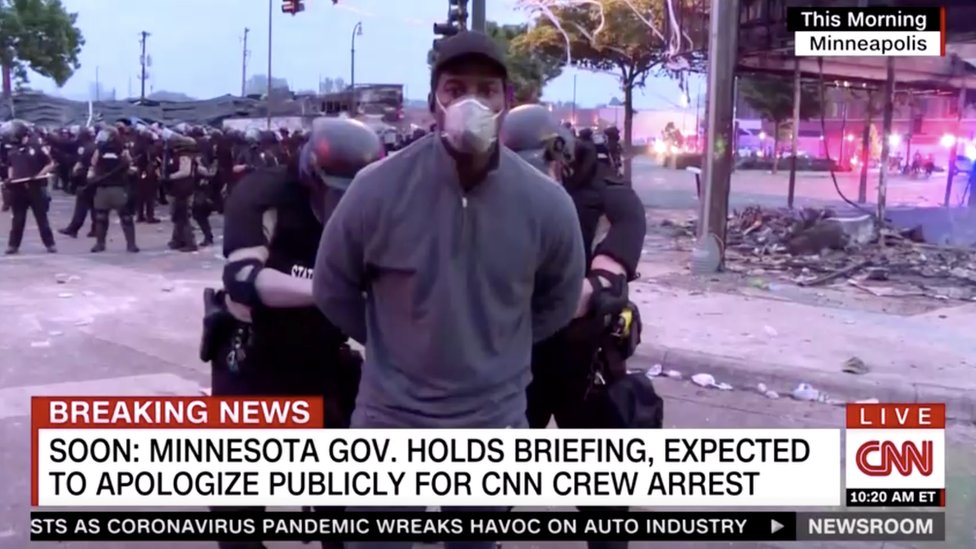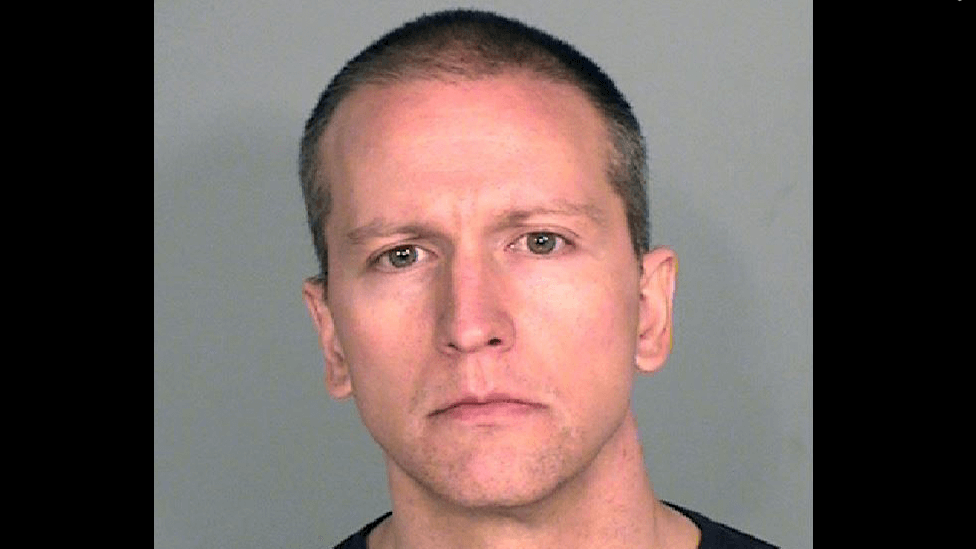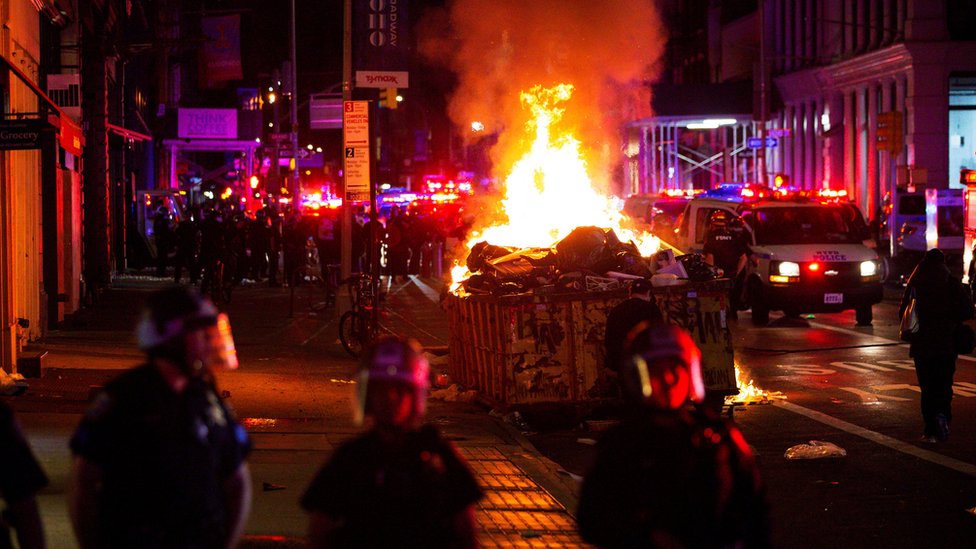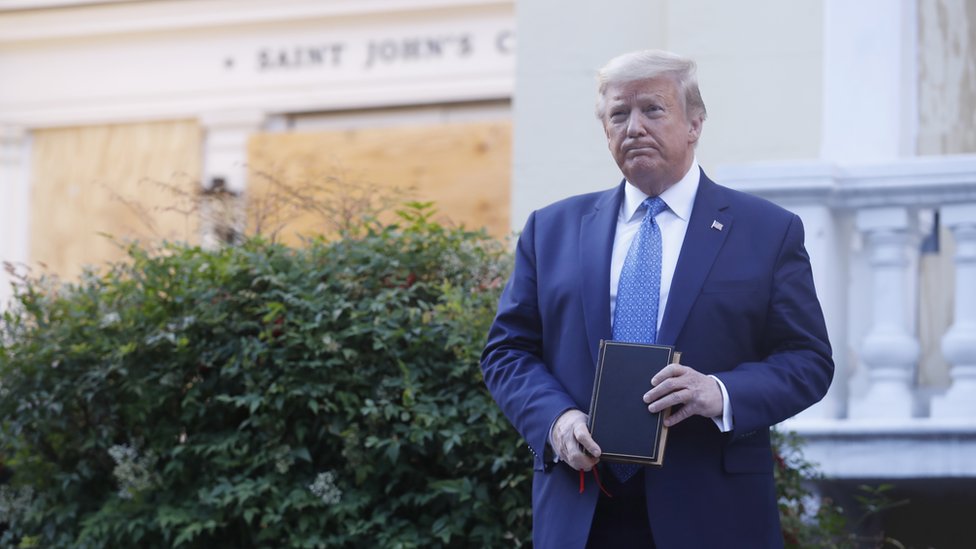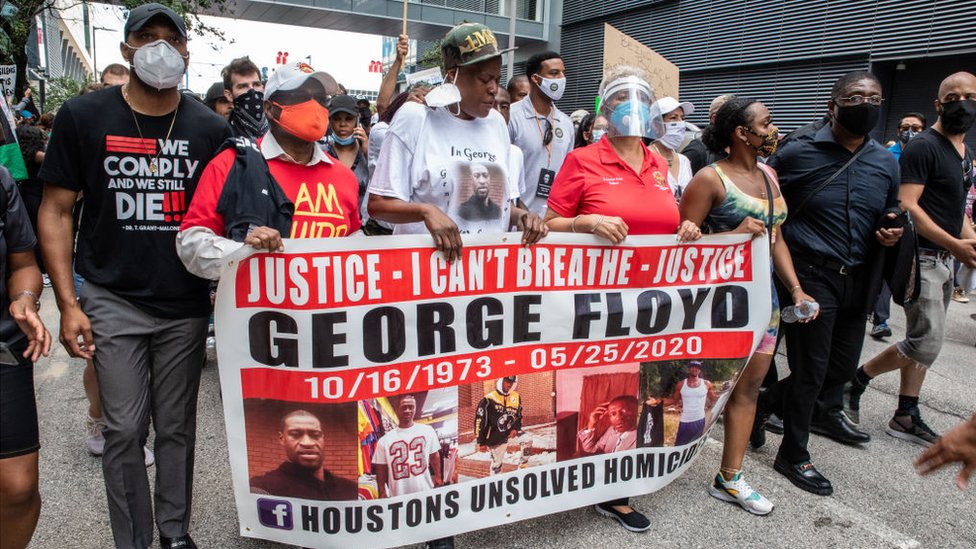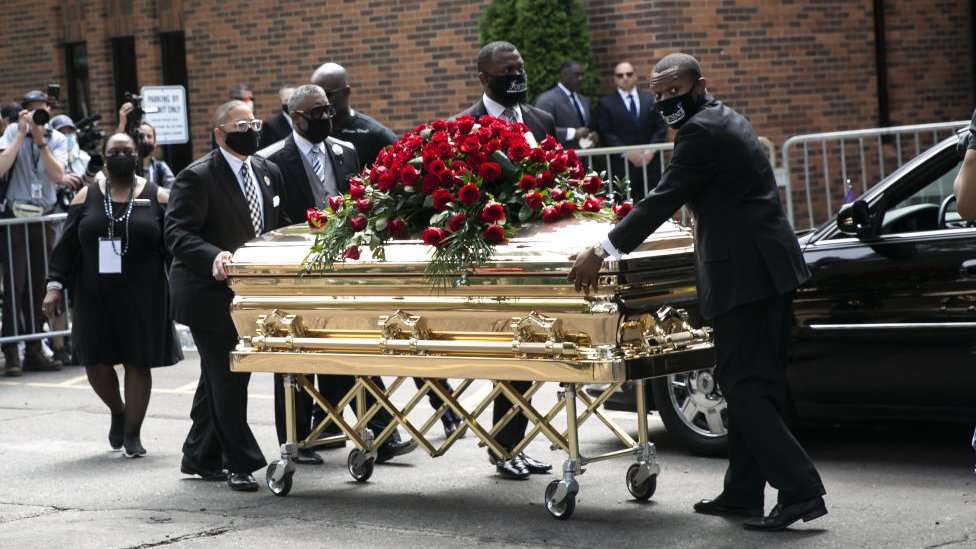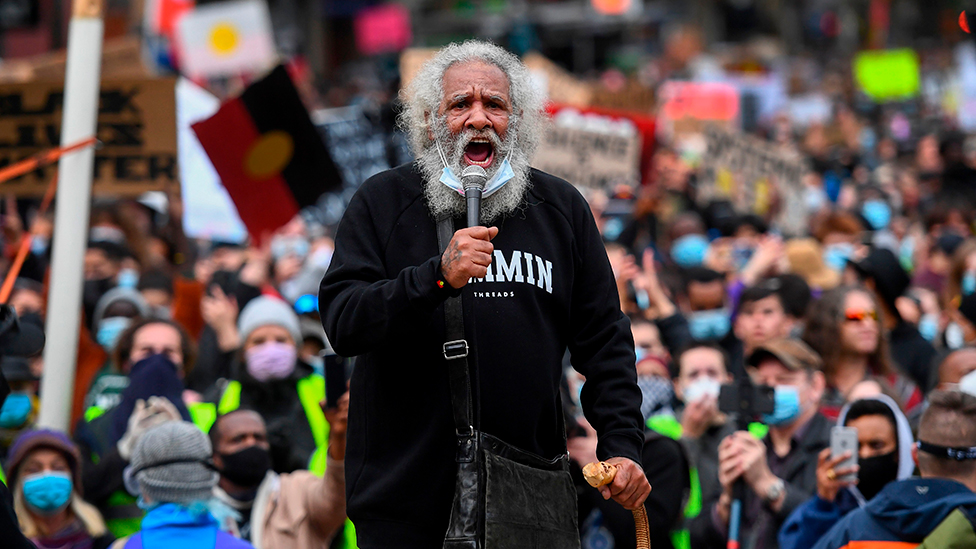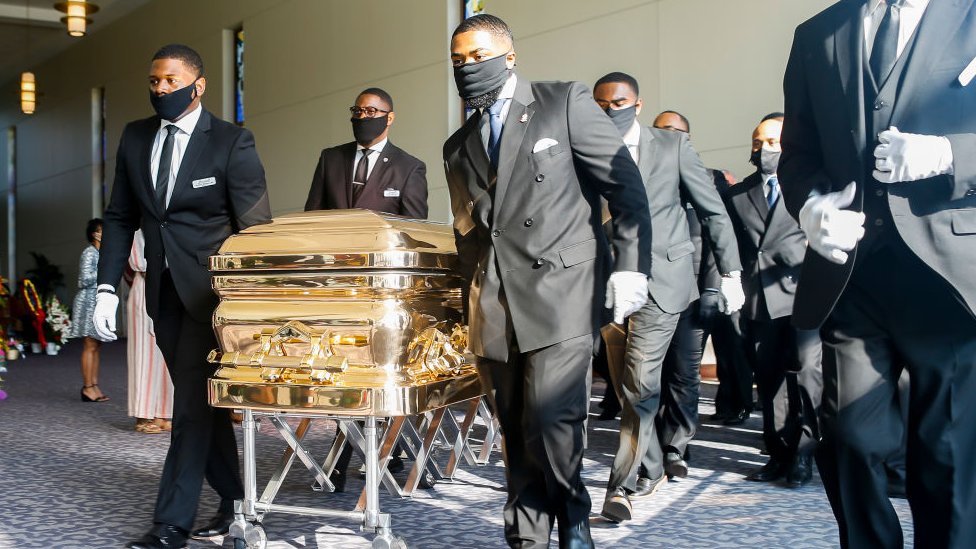George Floyd: Huge protests against racism held across US
- Published
"Keep pushing": Washington DC protesters on keeping the momentum going
Huge peaceful rallies have taken place across the US against racism and police brutality on the 12th day of protests sparked by the death of George Floyd.
Tens of thousands of people marched in Washington DC, in the city's largest protest so far. Security forces blocked any approach to the White House.
Crowds also demonstrated in New York, Chicago, LA and San Francisco.
Meanwhile, people paid their respects to Mr Floyd in North Carolina, where he was born, before a memorial service.
Mr Floyd, an unarmed black man, died in police custody in Minneapolis on 25 May. Video showed a white police officer kneeling on his neck for almost nine minutes while he is pinned to the floor.
Officer Derek Chauvin has been dismissed and charged with murder. Three other officers who were at the scene have also been sacked and charged with aiding and abetting.
Large anti-racism protests also took place in a number of other countries. In the UK, Parliament Square in central London was filled with people despite calls by the government to avoid mass gatherings for fear of spreading the coronavirus.
In Australia, there were major protests in the cities of Sydney, Melbourne and Brisbane that focused on the treatment of indigenous Australians. There were also demonstrations in France, Germany and Spain.
What happened at the protests?
The largest appeared to be in Washington DC, where protesters - many of them carrying placards saying "Black Lives Matter" - gathered peacefully near the Capitol, the Lincoln Memorial and outside Lafayette Park, next to the White House, at the newly renamed Black Lives Matter Plaza.
Mayor Muriel Bowser welcomed people, saying the crowds had sent a message to President Donald Trump. On Monday, federal law enforcement officers fired tear gas to clear a protest in the area ahead of a visit to a church by the president.
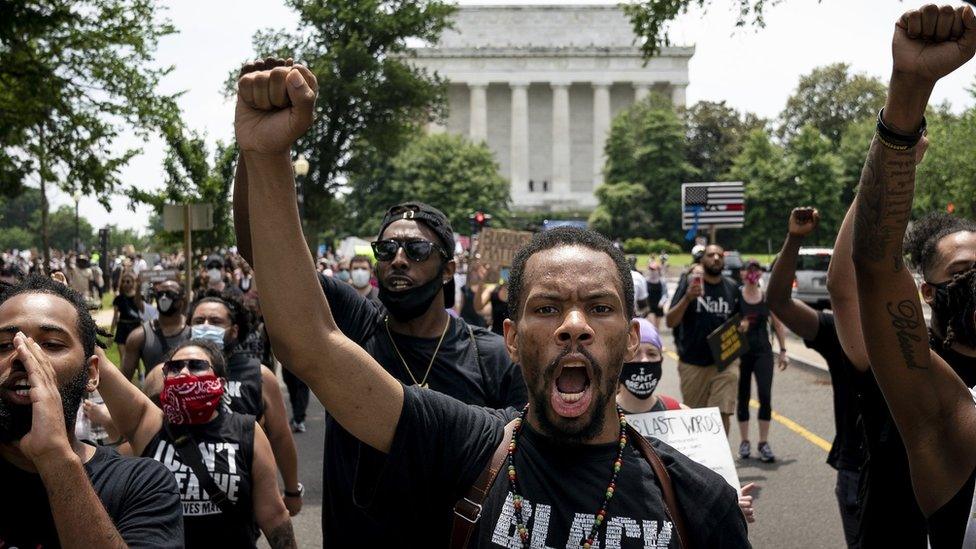
Demonstrators in Washington DC said they would not stop pushing for change
"If he can take over Washington DC, he can come for any state, and none of us will be safe," she said. "Our soldiers should not be treated that way, they should not be asked to move on American citizens."
Ms Bowser has requested the withdrawal of all federal law enforcement officers and National Guard troops from the city, saying their presence is "unnecessary".
One 35-year-old protester, Eric Wood, told the BBC: "I'm here because I really couldn't afford not to be here. Racism has long been a part of the US."
Crystal Ballinger, 46, said she felt hopeful about the movement this time. "I feel something different about this protest... I'm hopeful that the message of solidarity and equality is getting out."
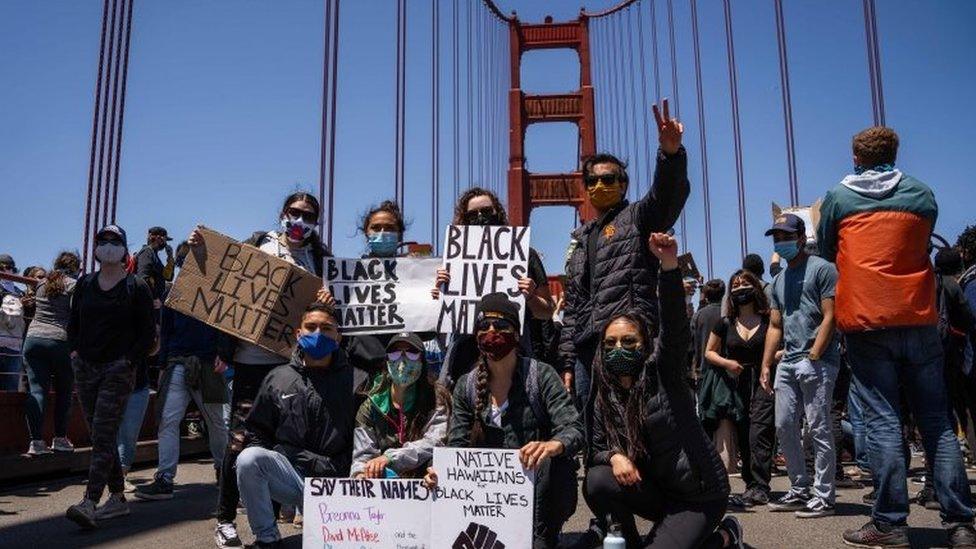
In San Francisco, demonstrators briefly shut the Golden Gate Bridge
Many of the city curfews imposed after initial unrest have now been lifted. With restrictions eased, arrests have plummeted.
However, late on Saturday police in Portland, Oregon, declared an "unlawful assembly and civil disturbance" after projectiles were thrown at officers near the Justice Center. Fifty arrests had been made by the early hours.
Seattle police also said projectiles had been thrown and several officers were hurt by "improvised explosives".
Earlier in New York, crowds crossed the Brooklyn Bridge, while in San Francisco demonstrators briefly shut the Golden Gate Bridge. In Chicago, about 30,000 people rallied in Union Park, and a Hollywood intersection was blocked by protesters in Los Angeles.
And in Richmond, Virginia, a statue of a Confederate general was pulled down from its pedestal.
There were also protests in Atlanta and Philadelphia, where crowds chanted, "We need justice, we need love".
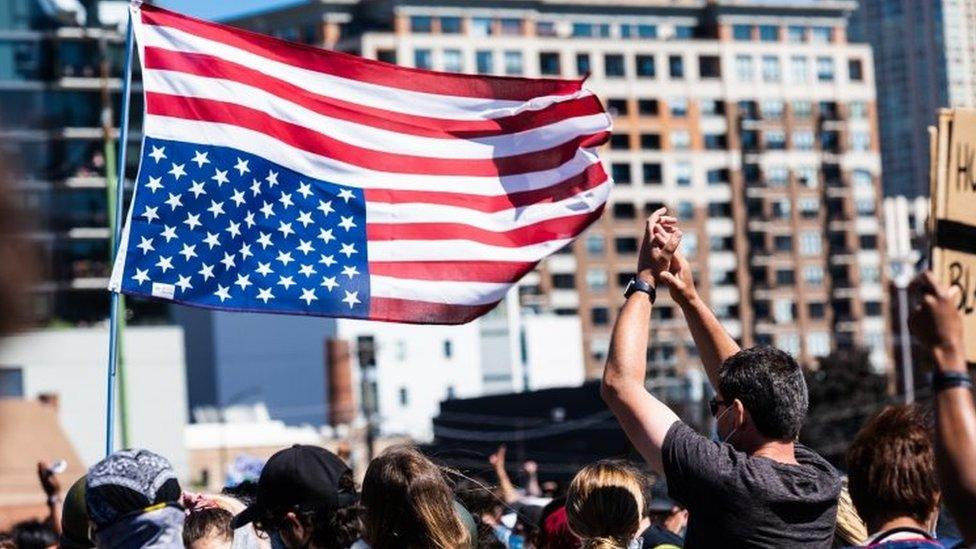
In Chicago, some protesters waved US flags turned upside down
Meanwhile, the top editor of the Philadelphia Inquirer resigned after publishing a headline that equated property damage to the deaths of black people, which prompted public condemnation from many of the newspaper's staff.
Stan Wischnowski apologised for what he described as a "horribly wrong" decision to use the headline "Buildings Matter Too" on an article about civil unrest in the US.
In Buffalo, two policemen were charged with second-degree assault after they were filmed pushing a 75-year old protester to the ground, seriously injuring him.
In his overnight tweets, President Trump thanked the police, Secret Service and National Guard for doing a "fantastic job" and said that the Washington crowd was "much smaller than anticipated.

'We're just getting started'
By Helier Cheung, BBC News, Washington DC
The crowd was diverse - with people of different ethnicities, and families with children - and there was an upbeat, if determined, mood. Music was being played and food, water and hand sanitiser handed out, as protesters chanted "George Floyd", "Breonna Taylor" - who was shot by police in March - and "No justice, no peace".
The protest's movements appeared quite spontaneous. At one point, demonstrators did an impromptu march, walking down Pennsylvania Avenue before looping back towards the White House. At another, the entire street of demonstrators dropped on one knee at the same time, in a mark of solidarity.
Sisters Sarina Lecroy, 20, and Grace, 16, said they were protesting for the first time, and that they believed the extent of the public outrage and the nationwide nature of these protests could lead to police reforms. "We're just getting started this time, but it [the movement] does feel much more collective than in the past," said Sarina.
Many placards also reflected the growing debate about how white people should help the cause. One placard held by a demonstrator read: "I may never understand, but I will stand with you."
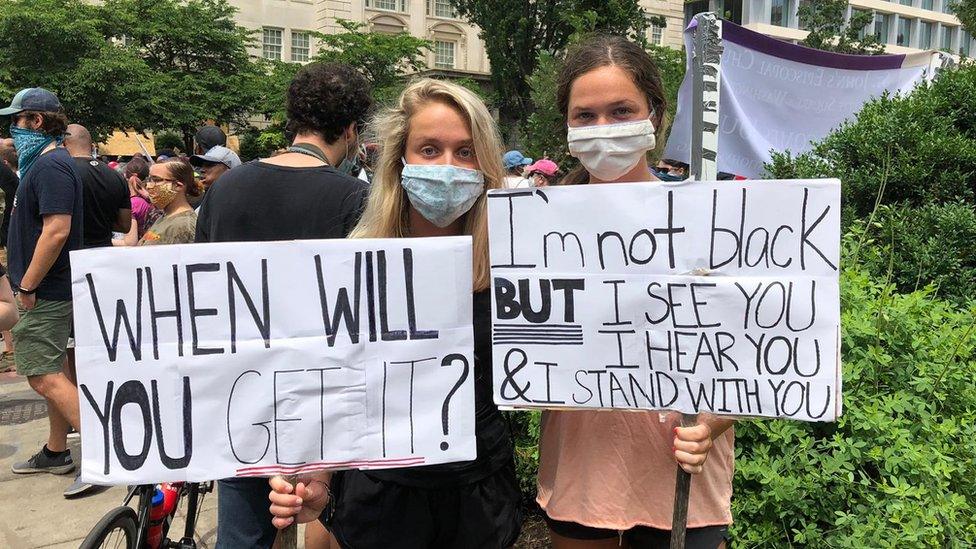
Sarina and Grace Lecroy were among the crowd at Lafayette Park, near the White House
What do protesters want?
On social media and on the streets, those in support of the movement have called on elected officials to address longstanding systemic racism and inequalities, from police brutality to mass incarceration to healthcare.
Black Americans are jailed at five times the rate of white Americans and sentenced for drug offences six times more, often despite equal rates of drug use, according to the National Association for the Advancement of Colored People (NAACP).
The US's history of racial inequality has paved the way for modern day police brutality
Black mothers die in childbirth at over twice the rate of white mothers, according to national health data. Decades of government-sanctioned segregation have also seen inequalities across school systems, housing and other public resources.
A 2019 Pew Research Center study found more than eight in 10 black adults say the legacy of slavery still affects black Americans' position today. Half say it is unlikely America will ever see true racial equality.

More on George Floyd's death
VIEWPOINT: Tipping point for racially divided nation
TIMELINE: Recent black deaths at hands of police
BACKGROUND: Five pieces of context to understand the protests
CRIME AND JUSTICE: How are African Americans treated?

What happened at Floyd's memorial service?
Hundreds of people paid their respects to Mr Floyd in Raeford, North Carolina, laying flowers at a public viewing of his body in a church near where he was born.
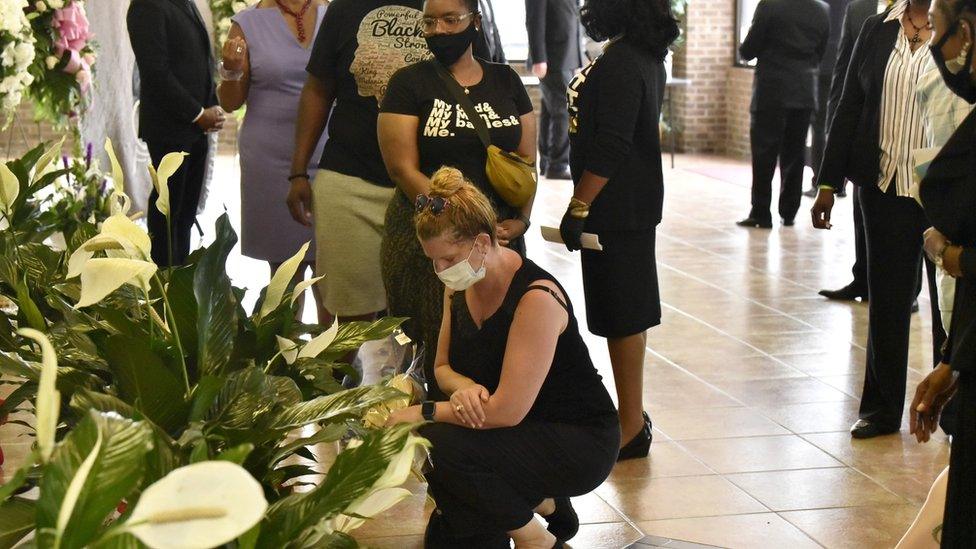
In North Carolina, George Floyd's family held a public viewing and a memorial service
A private memorial service was then held for members of his family.
Governor Roy Cooper ordered that flags be flown at half-mast from sunrise to sunset on Saturday in Mr Floyd's honour.
Mr Floyd's funeral is due to take place on Tuesday in Houston, where he lived before moving to Minneapolis.

